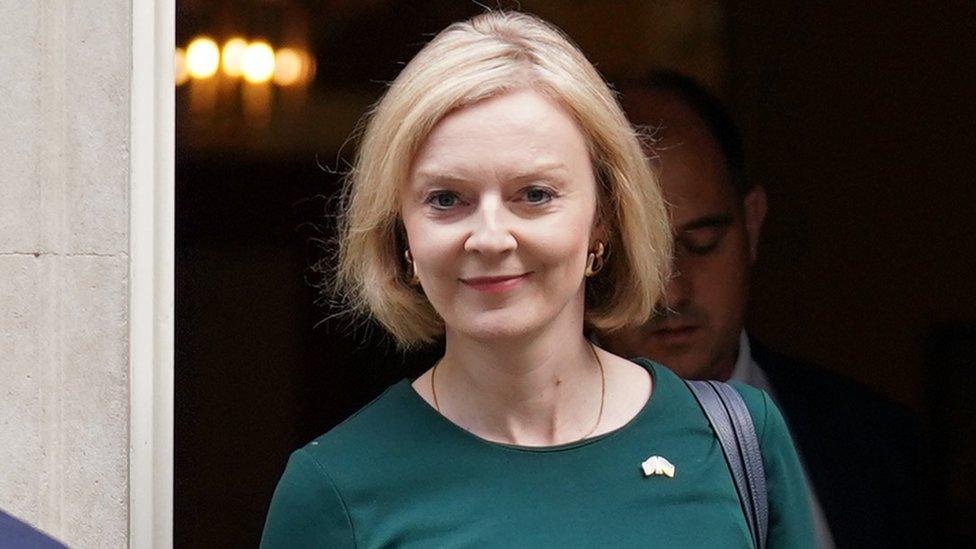What Sunak’s Atlantic Declaration is – and isn’t
- Published
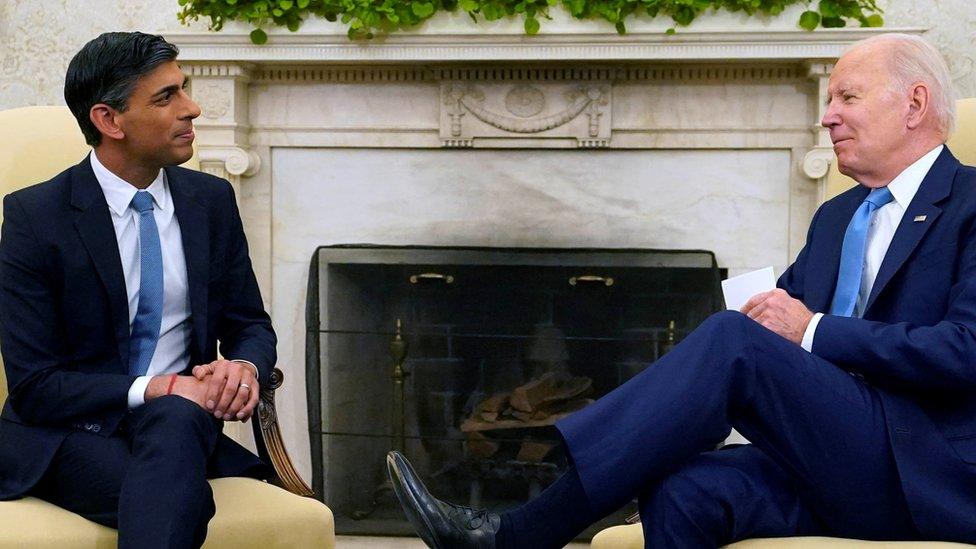
Prime Minister Rishi Sunak met US President Joe Biden at the White House on Thursday
The Conservative manifesto in 2019 read like this: "Our goals for British trade are… ambitious. We aim to have 80% of UK trade covered by free trade agreements within the next three years, starting with the USA."
In truth the likelihood of such a full fat agreement, on that timeframe in particular, was probably pretty small, and it's been very small for as long as President Joe Biden has been in the White House - a reality acknowledged by Boris Johnson and Liz Truss as well as Rishi Sunak.
And three years on from 2019 was 2022, last year - and there is no such deal.
This is why I asked the prime minister and the president about it: given they are unveiling something of an alternative - the Atlantic Declaration - it is important to scrutinise and highlight the gap between what was in the prospectus for government that gives Mr Sunak his mandate to govern, and what he is now talking up.
Not least because trade deals have been done with others, possible once the UK was outside the European Union.
From Mr Sunak's perspective, the politics of this is straightforward: attempting a free trade agreement, even if President Biden wanted to deliver one and could deliver one, would take longer than either man has between now and facing their electorates in the next 18 months.
So better to work up an arrangement now, even if chunks of it require further negotiation before they happen.
Downing Street argues, in explaining why there has been no such deal with the US, that the world has changed since 2019. And it has.
It is worth exploring how it has changed, how that is remoulding international relations and the consequences for the UK.
Covid, the threat posed by China, and the war in Ukraine have been catalysts for a collective fretting from many of the relatively rich democracies over economic security.
Translated: how to get hold of components or energy without relying on now hostile states.
This Declaration, at least partially, attempts to address this.
There is concern about military security too, which prompted the AUKUS pact between the UK, the US and Australia.
But the economic elephant in the diplomatic corridors is America's Inflation Reduction Act - a massive stimulus to address economic security and base green industries of the future in previously left behind American areas.
It is so big it has turned heads in boardrooms globally.
The Biden Administration's motivation is this: the economy needs to adapt given climate change, China and Russia - so let's make America less dependent on others and ensure those jobs of the future are in America.
Labour say they'd do something similar. The Conservatives won't - but No10 point to elements in this deal that mitigate against some of its downsides to British businesses.
Downing Street are upbeat about how the last few days have panned out.
Rishi Sunak and his delegation stayed at Blair House, the President's official guesthouse.
Talk to those who have been there and it's a reminder the accommodation on these trips is part of the diplomacy.
The political history at every turn. The portraits on the walls. The giant strawberry dipped in chocolate left in a guest's room.
Oh, and it turns out the chef in Blair House is from Warrington.
He keeps fish and chips on the menu as a nod to his British heritage. But hasn't yet persuaded his bosses of the merits of shepherd's pie.
The prime minister appears to relish the international element of his job: the methodical building of alliances and personal relationships, the deal making.
But the domestic fray beckons again, as he swaps the Oval Office of the White House for a gathering of his northern English MPs in South Yorkshire.
Related topics
- Published9 June 2023
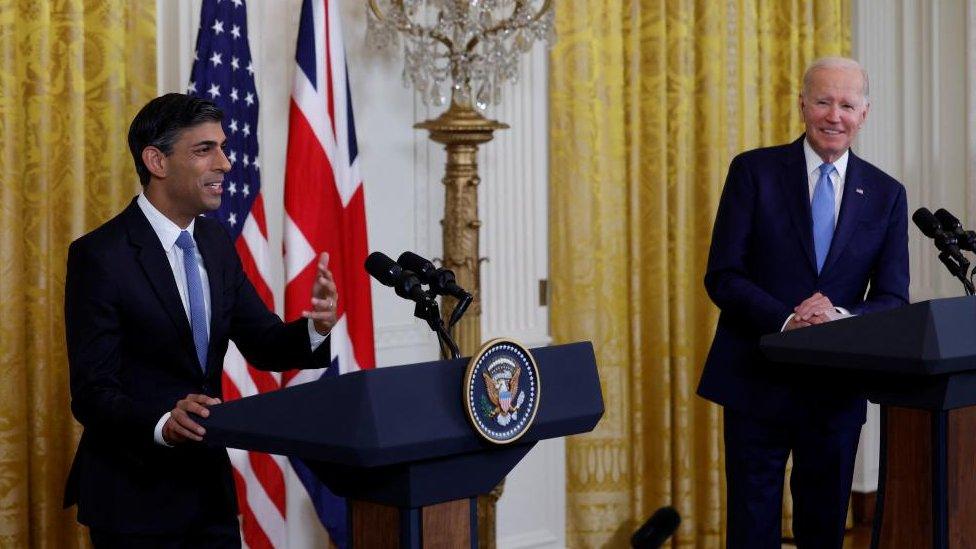
- Published7 June 2023
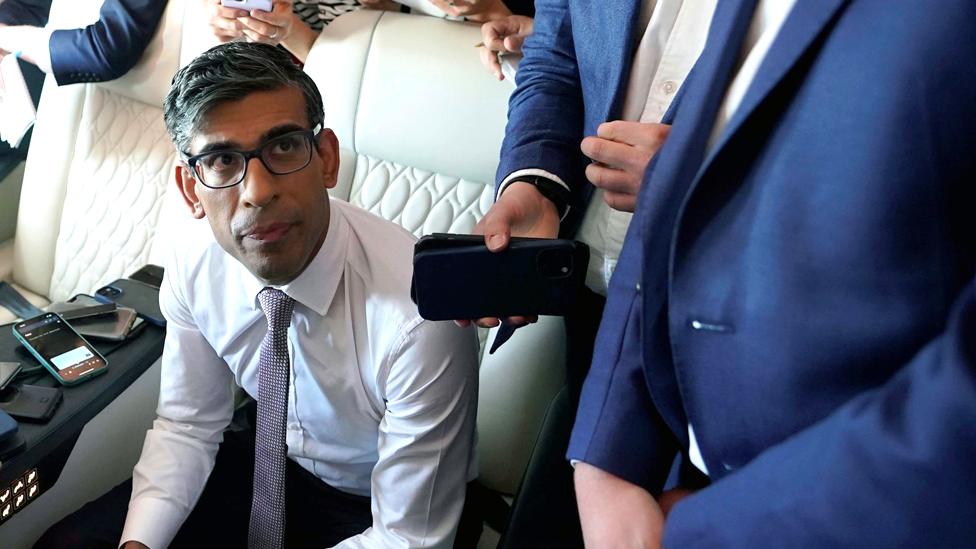
- Published26 January 2023
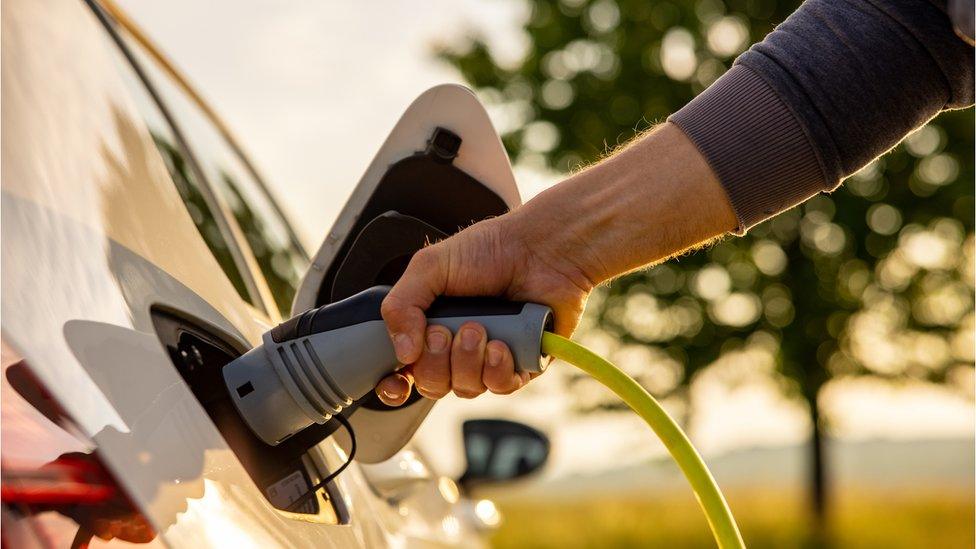
- Published20 September 2022
